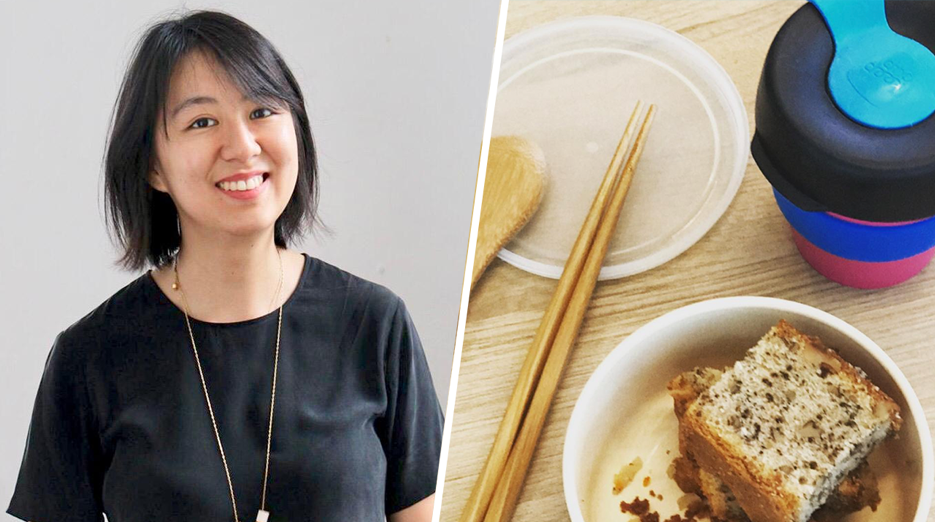
At first glance, @tabaogirl appears to be a food review page on Instagram.
But take a closer look at the captions accompanying every tempting food shot — you’ll find that the real stars in these pictures are the reusable containers used to tabao food (ordering take-out in Mandarin) and the reusable cutlery used to enjoy the meals.
The person behind @tabaogirl is Ms Khee Shihui, 37, who’s taken upon herself to fight a war against disposables.
Since 2017, she’s posted regularly on Instagram to demonstrate eco-friendlier ways to order take-out and shop for grocery. The posts are usually captioned with details on the type and quantity of disposables she’s managed to avoid using. The numbers are then tallied at the end of each month to show the positive impact an individual like her can make.
Her page has so far gained a following of over 4,200. She’s also been featured on The Straits Times and the Ministry of the Environment and Water Resources’ (MEWR) Facebook page.
Ms Khee knows that her activism must go beyond social media. Offline, not only does she refuse paper cups, plastic cutlery, styrofoam boxes and other disposables, she also makes an effort to bring reusable containers and cutlery for her friends when they meet for meals.
“I do this in the hope that they will one day be paiseh (embarrassed in Hokkien) enough to bring their own,” Ms Khee quipped.
Ms Khee is among a growing number of eco-warriors who’s flagged single-use plastic disposables as a key threat to our environment.
Between 2003 and 2018, the amount of plastic waste generated in Singapore has grown by more than 60 per cent, according to data from National Environmental Agency (NEA).
Plastic is the most common category of waste disposed of here since 2009.
On the flip side, plastic recycling rates have remained very low over the years, with only 40,700 tonnes, or 4 per cent, recycled in 2018. This the lowest rate since 2003.
“Being environmentally friendly requires a massive change in our lifestyle,” says Ms Khee, who cultivated her habits by progressing from small achievements to bigger goals. “The most difficult obstacle is how willing we are to change our way of life.”
According to the National Climate Change Secretariat’s 2016 Climate Change Public Perception Survey, over 33 per cent of respondents in Singapore felt that their individual actions did not matter.
Ms Khee said she’s met a student who felt the odds are too stacked against those who want to make a difference. There are also those who become disillusioned with corporate greenwashing and other empty calls for change.
As a social sector worker and an active volunteer who’s fought for the causes she cares for, she understands the sentiments all too well. “Every single day, I feel extremely tired, and I wonder when Singapore will change.”
However, she remains a firm believer in the power of individuals, citing how public pressure has forced companies such as H&M, known for its questionable fast fashion practices, to change their ways.
“If people don’t change, the government won’t change, and companies won’t change. Are you willing to charge corporates for the damage they have done?”
Her own efforts have borne fruit. In 2018, she saved 438 plastic bags and 246 plastic straws among other items.
The support she receives online encourages her to stay the course.
“Every time someone messages me to tell me that I have become a nagging conscience in their mind, it’s a victory for me.”
